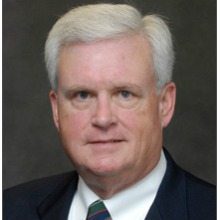
WashingtonExec sat down with GTSI’s Sterling Phillips, Chief Executive Officer (CEO), and Prem Jadwani, Senior Solutions Architect of Enterprise Solutions Group. Phillips discussed the benefits of big data, retaining customers and how he asses the current government contracting climate.
We asked Jadwani about his recent TechAmerica Big Data Commission appointment, the “data gap” as well as roadblocks he has faced with implementing big data technology.
WashingtonExec: What do you think the federal contracting climate looks like now?
Sterling Phillips: The thing that dominates the outlook for federal contractors at the moment is uncertainty. It is difficult to predict what’s going to happen in terms of customer budgets and buying patterns, and when it is going to happen. It makes it extraordinarily difficult to plan. We’ve got to be able to quickly react to whatever comes at us and optimize the situation as quickly as we can.
This makes it difficult for example to hire people because there are scenarios where you might be in a position where you might have to reduce your workforce depending on where the budgets fall but flexibility and understanding your options and leaving your options open really are the keys for our business planning as we look out over the next 24 months.
————————————————————————–
“I think everybody understands we have an unsustainable level of deficit spending today. It a problem that has to be resolved. No matter how you look at it – whether you look at increased taxes or reduced spending – There need to be some fairly substantial changes to the budget calculus that we’ve all been operating under for the last decade. The politics of that are very, very hard and I worry a lot about our political system and the current environment being able to deal with really hard problems in an effective way.”
-Sterling Phillips
————————————————————————–
WashingtonExec: Have you learned more from your mistakes or your successes?

Sterling Phillips: I think if you’re an introspective person you learn from both, but I think you learn more from your failures because most failures, in a business sense, come from something you didn’t know. Generally speaking, when you have a failure in the business setting, there are new things to be learned. The pain of failure tends to underscore the learning that you get.
WashingtonExec: What keeps you up at night?
Sterling Phillips: I think everybody understands we have an unsustainable level of deficit spending today. It a problem that has to be resolved. No matter how you look at it – whether you look at increased taxes or reduced spending – There need to be some fairly substantial changes to the budget calculus that we’ve all been operating under for the last decade. The politics of that are very, very hard and I worry a lot about our political system and the current environment being able to deal with really hard problems in an effective way.
WashingtonExec: Prem, how is your TechAmerica appointment going?
Prem Jadhwani: It is going really well. It is a real collaboration with the smart thinkers in industry, OEMs, academia, public sector. [They’re] all coming together for a common cause: to understand the best practices and recommendations for the Obama Administration and agencies to leverage big data. The technologies are all maturing. It is all coming together, but there has to be some direction and some recommendations for government agencies. I think this is very timely.
WashingtonExec: How often do you have your meetings?
Prem Jadhwani: Depending on how many work stream groups you are on, they meet once a week. I’m on two of them so I have two meetings a week.
WashingtonExec: It sounds like a big commitment.
Prem Jadhwani: It is, but it is all good stuff. I’m really excited. At GTSI we have been doing a lot of data center and infrastructure work so this is an extension to that.
—————————————————————————-
“Most important, I see big data as a way to increase the mission effectiveness. How do we become proactive? How do we figure out what events are going to happen?” -Prem Jadhwani
—————————————————————————-
WashingtonExec: What specific data capabilities are you investing in?
Prem Jadhwani: So when you say “big data,” basically they are trying to look at the three V’s. That is the typical definition – volume, velocity and validity of data. Basically this is a technology which is trying to understand and make sense of huge amounts of data. It is full-motion video, email, social media, census data and lots of good that is all coming together, but how do we make sense of that? We have more questions at this point and we need to define standards and find the answers.
WashingtonExec: Do you mean cyber security standards? Should we be worried about open data initiatives releasing all of this new information?
Prem Jadhwani: If you remember two years ago when we were discussing cloud computing, cloud was at a similar stage and I always remind people ‘look at when cloud came out.’ We have come a very long way in terms of the adoption of cloud. What we are doing with big data is at a similar phase, where we don’t have any reference document from NIST or from any other agency. This is the reason why everyone is coming together to define what the maturity model looks like, where does the customer start [and]how do they go to the next step, and what does the journey look like.
WashingtonExec: Do you see big data as a way of helping the federal government or federal contractors save money?
Prem Jadhwani: Most important, I see big data as a way to increase the mission effectiveness. How do we become proactive? How do we figure out what events are going to happen? How do we make sense of all of the disparate data sitting in different databases? It is the big data solutions that allow you to tie and connect the dots here, and be able to come up with a meaningful and actionable intelligence. That is the whole objective. I see that there is of course a cost savings in the long term but more effective advantages; the agency becomes more effective in their missions.
WashingtonExec: Is there an agency or a sector that you see currently as a big data leader?
Prem Jadhwani: In fact, that is one of the charters of the TechAmerica Commission. There is a work stream group that is looking at various use cases for agencies; whether it is financial, healthcare, intelligence – and coming up with meaningful information on how that agency can leverage their data.
WashingtonExec: What else do you think the government should be doing that they are not in regards to these initiatives?
Prem Jadhwani: Big data is such a big kind of a solution with so many unknowns. Agencies collaborate with academia, industry and commercial sectors and try to leverage the best practices and innovations. Federal agencies need to work through processes, policies and politics to break down data silos. There is a lot of data and a lot of time the agencies don’t have any idea who that data belongs to [or]how they should share it across different domains.
WashingtonExec: What is the largest roadblock with using new types of technologies?
Prem Jadhwani: Many of the agencies are trying to figure out where to start. They are trying to figure out the [return on investment]of the solution, what technology is out there and how much budget they need to put aside. There are a lot of unknowns. My recommendation is to first look at the mission – what the agency stands for and understand what the inefficiencies are, and how can big data come in and solve them. Take an incremental approach.
Sterling Phillips: There isn’t a well-defined pattern in government of what to do and how to do it. Because of the challenges of government regulations and the procurement process, the things that tend to get done easiest and fastest are where people can look and see what other agencies have done. I think there is just a natural institutional resistance in an enterprise the size of the federal government to something that really is new. I think that is pervasive and independent of the technology of the agency, or the contractors involved.
WashingtonExec: How large or significant is the data gap – the gap between the amount of data available and the amount of people able to analyze it (trained workforce)?
Prem Jadhwani: According to a recent report by MeriTalk, agencies currently store an average of 1.61 petabytes of data, but expect to get to 2.63 petabytes in just the next two years. The data volume is growing at an average of 40 percent per year. Agency data is expected to keep growing exponentially from volume, velocity and variety perspective (both structured and unstructured data, including full motion video, emails, voice, social networks, sensor-enabled facilities, web and biometrics data). I anticipate agencies are going to have a hard time finding skilled workforce for big data projects. Government needs to spend money to develop skilled data scientists, data technologists and data architects who bring multi-disciplinary skills (database, analytical, business, statistics, Artificial Intelligence, Mathematical Modeling & Real time Analytics) to the table.
As per the Big Data Report published by the McKinsey Global Institute published in May 2011, the United States alone faces a shortage of 140,000 to 190,000 people with analytical expertise and 1.5 million managers and analysts with the skills to understand and make decisions based on the analysis of big data. The demand for data scientists is expected to outstrip availability over the next several years. The development of new tools and emerging technologies is likely to exacerbate the demand for data scientists.
WashingtonExec: What made you want to invest in big data and analytics technologies?
Sterling Phillips: Big data, and I think of it more as big analytics, is an emerging capability of software that has extraordinary potential for enterprises like the U.S. government. The government has recognized this and has begun to take steps to promote the adoption of data analytics [and]big data. I think the budget in that area will continue to grow. IT contractors like GTSI need to invest so that we can position ourselves to provide solutions and be a competitor in two or three years when it is a much bigger, more robust budget item.
WashingtonExec: Does GTSI have a “bring your own device” policy?
Sterling Phillips: We don’t have a formal policy but we allow employees to bring a variety of devices and attach them to the network. Our IT team has certain criteria and there may be devices that aren’t supported. I think the bring-your-own-device phenomenon is important. In my view, it is employees raising their hands saying, “I want to be more productive when I’m not sitting at my desk,” and I think there is value in the enterprise accommodating that to the extent they can.
WashingtonExec: What have you learned about retaining your customer base?
Prem Jadhwani: Some of the important things we have learned about retaining our customer base are:
We take the customer intimacy very seriously. We take time to understand our customer’s goals/mission and make it our own mission. It even reflects in our tagline: “One Mission. Yours.” A strong focus on mission results is a great place to start. Understanding how information is used by end-users will help the agency set operational objectives to increase end-user success.
We take time to understand the new and emerging developments in the market like Big Data, Mobility/End-User Computing, Cloud Computing, etc., and we ensure that we spend time educating the customer. We recommend and design the most economical and technically sound solutions using best-of-breed technologies keeping in mind various business, technical and financial constraints for each customer.
We commit ourselves and our organization to continuous customer satisfaction evaluation and improvement. We constantly seek feedback and opinions from customers. We measure results and always strive to do better with customer satisfaction.


